Filter by
# Debug Box
/var/www/htdocs/pustaka-digital/lib/SearchEngine/SearchBiblioEngine.php:688 "Search Engine Debug 🔎 🪲"
Engine Type ⚙️: "SLiMS\SearchEngine\SearchBiblioEngine"
SQL ⚙️: array:2 [ "count" => "select count(sb.biblio_id) from search_biblio as sb where sb.opac_hide=0 and (sb.call_number LIKE :callnumber)" "query" => "select sb.biblio_id, sb.title, sb.author, sb.topic, sb.image, sb.isbn_issn, sb.publisher, sb.publish_place, sb.publish_year, sb.labels, sb.input_date, sb.edition, sb.collation, sb.series_title, sb.call_number from search_biblio as sb where sb.opac_hide=0 and (sb.call_number LIKE :callnumber) order by sb.last_update desc limit 10 offset 290" ]
Bind Value ⚒️: array:1 [ ":callnumber" => "5%" ]

The Essence of mathematics through elementary problems
"It is increasingly clear that the shapes of reality – whether of the natural world, or of the built environment – are in some profound sense mathematical. Therefore it would benefit students and educated adults to understand what makes mathematics itself ‘tick’, and to appreciate why its shapes, patterns and formulae provide us with precisely the language we need to make sense of the w…
- Edition
- -
- ISBN/ISSN
- 9781783747016
- Collation
- 389 p.; 23 cm.
- Series Title
- OBP Series in Mathematics, vol. 3
- Call Number
- 510.01 BOR e
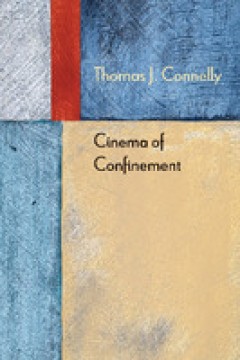
The philosophy of mathematics education
This survey provides a brief and selective overview of research in the philosophy of mathematics education. It asks what makes up the philosophy of mathematics education, what it means, what questions it asks and answers, and what is its overall importance and use? It provides overviews of critical mathematics education, and the most relevant modern movements in the philosophy of mathematics. A…
- Edition
- -
- ISBN/ISSN
- 9783319405698
- Collation
- 26 p.
- Series Title
- -
- Call Number
- 510.71 PHI p
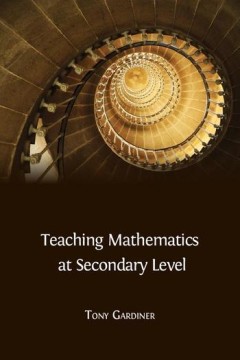
Teaching mathematics at secondary level
Teaching Mathematics is nothing less than a mathematical manifesto. Arising in response to a limited National Curriculum, and engaged with secondary schooling for those aged 11 ̶ 14 (Key Stage 3) in particular, this handbook for teachers will help them broaden and enrich their students’ mathematical education. It avoids specifying how to teach, and focuses instead on the central principles a…
- Edition
- -
- ISBN/ISSN
- 9781783741397
- Collation
- vii, 316p. : ill.
- Series Title
- -
- Call Number
- 510.712 GAR t
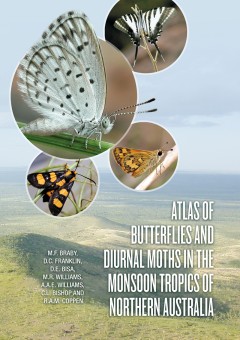
Atlas of butterflies and diurnal moths in the monsoon tropics of Northern Aus…
Northern Australia is one of few tropical places left on Earth in which biodiversity—and the ecological processes underpinning that biodiversity—is still relatively intact. However, scientific knowledge of that biodiversity is still in its infancy and the region remains a frontier for biological discovery. The butterfly and diurnal moth assemblages of the area, and their intimate associatio…
- Edition
- -
- ISBN/ISSN
- 9781760462338
- Collation
- xxxii, 430p. : ill.
- Series Title
- -
- Call Number
- 595.7890994 BRA a
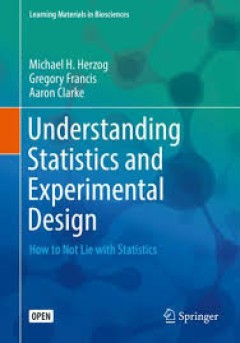
Understanding statistics and experimental design : how to not Lie with statis…
This open access textbook provides the background needed to correctly use, interpret and understand statistics and statistical data in diverse settings. Part I makes key concepts in statistics readily clear. Parts I and II give an overview of the most common tests (t-test, ANOVA, correlations) and work out their statistical principles. Part III provides insight into meta-statistics (statistics …
- Edition
- -
- ISBN/ISSN
- 9783030034993
- Collation
- -
- Series Title
- -
- Call Number
- 519.5 HER u
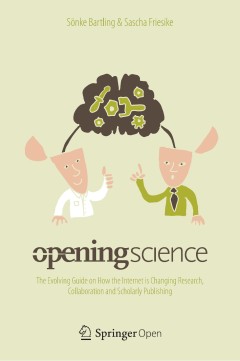
Opening science : the evolving guide on how the Internet is changing research…
Modern information and communication technologies, together with a cultural upheaval within the research community, have profoundly changed research in nearly every aspect. Ranging from sharing and discussing ideas in social networks for scientists to new collaborative environments and novel publication formats, knowledge creation and dissemination as we know it is experiencing a vigorous shift…
- Edition
- -
- ISBN/ISSN
- 9783319000268
- Collation
- ix, 339p. : ill.
- Series Title
- -
- Call Number
- 502.854678 OPE o
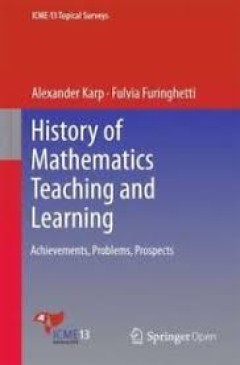
History of mathematics teaching and learning
The history of mathematics education is afield of study that is both old and new. It is old because scholarly works in the field began to appear over 150 years ago. Schubring (2014a) refers to Fisch (1843), as possibly thefirst work on the subject published in Germany. In the United States thefirst dissertations on mathematics education (Jackson 1906; Stamper 1906) focused specifically on i…
- Edition
- -
- ISBN/ISSN
- 9783319316154
- Collation
- -
- Series Title
- -
- Call Number
- 510.71 KAR h
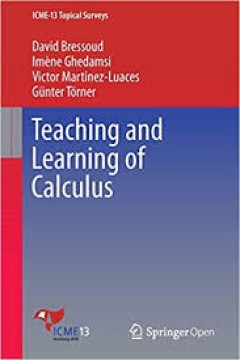
Teaching and learning of calculus
This “ICME-13 Topical Survey” aims to give a view of some of the main evolutions of the research in the field of learning and teaching Calculus, with a particular focus on established research topics associated to limit, derivative and integral. These evolutions are approached with regard to the main trends in the field of mathematics education such as cognitive development or task design…
- Edition
- -
- ISBN/ISSN
- 9783319329741
- Collation
- -
- Series Title
- -
- Call Number
- 515 BRE t
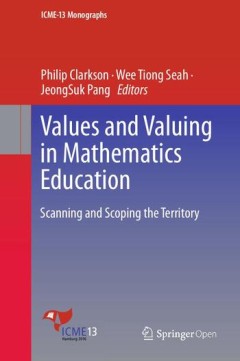
Values and valuing in mathematics education : scanning and scoping the territory
This engaging open access book discusses how a values and valuing perspective can facilitate a more effective mathematics pedagogical experience, and allows readers to explore multiple applications of the values perspective across different education systems. It also clearly shows that teaching mathematics involves not only reasoning and feelings, but also students’ interactions with their cu…
- Edition
- -
- ISBN/ISSN
- 9783030168926
- Collation
- x, 222p. : ill.
- Series Title
- -
- Call Number
- 510.71 VAL v
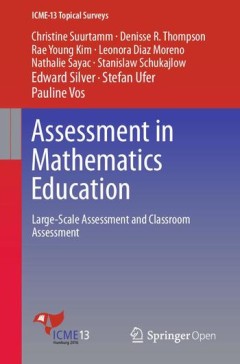
Assessment in mathematics education : large-scale assessment and classroom as…
This book provides an overview of current research on a variety of topics related to both large-scale and classroom assessment. First, the purposes, traditions and principles of assessment are considered, with particular attention to those common to all levels of assessment and those more connected with either classroom or large-scale assessment. Assessment design based on sound assessment prin…
- Edition
- -
- ISBN/ISSN
- 9783319323947
- Collation
- ix, 38p. : ill.
- Series Title
- -
- Call Number
- 510.71 ASS a
 Computer Science, Information & General Works
Computer Science, Information & General Works  Philosophy & Psychology
Philosophy & Psychology  Religion
Religion  Social Sciences
Social Sciences  Language
Language  Pure Science
Pure Science  Applied Sciences
Applied Sciences  Art & Recreation
Art & Recreation  Literature
Literature  History & Geography
History & Geography